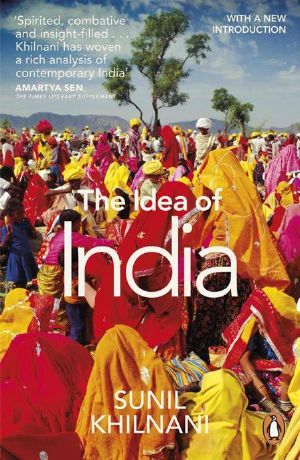The Idea of India

- Authors
- Khilnani, Sunil
- Publisher
- Not Avail
- Tags
- history , politics
- ISBN
- 9780141937243
- Date
- 1997-07-03T00:00:00+00:00
- Size
- 0.87 MB
- Lang
- en
Sunil Khilnani’s exciting book addresses the paradoxes and ironies that have surrounded the project of inventing India—a project that has brought Indians considerable political freedom and carried their enormous democracy to the verge of being Asia’s greatest free state but that has also left many of them in poverty and that is now threatened by divisive religious nationalism.
Khilnani’s superb historical analysis conveys modern India’s energy, fluidity, and unpredictability—in its democracy and its voting patterns, in its visions of economic development, in its diverse cities and devotion to village culture, and in its current disputes over its political identity. Throughout, he provokes and illuminates this fundamental question: Can the original idea of India survive its own successes?
From the Inside Flap
Fifty years ago the British divided and departed from their most prized imperial possession, handing over the new Indian state to a small nationalist elite led by Jawaharlal Nehru. The new country was then driven by a belief in a political construct, the idea of India, an idea that for decades animated the citizens' efforts to unite their huge, diverse, and poor society and to transform it into a modern state fit to join the irreversible movement of world history.
Sunil Khilnani's exciting book addresses the paradoxes and ironies that have surrounded this project of inventing India--a project that has brought Indians considerable political freedom and carried their enormous democracy to the verge of being Asia's greatest free state but that has also left many of them in poverty and that is now threatened by divisive religious nationalism.
Khilnani's superb historical analysis conveys modern India's energy, fluidity, and unpredictability--in its democracy and its voting patterns, in its visions of economic development, in its diverse cities and devotion to village culture, and in its current disputes over its political identity. Throughout, he provokes and illuminates this fundamental question: Can the original idea of India survive its own successes?
About the Author
Sunil Khilnani was born in Delhi and educated at Cambridge. He was a fellow at Christ's College, Cambridge, has taught politics at Birkbeck College, University of London and is now based at Johns Hopkins University in Washington, DC. He is writing a biography of Nehru for Penguin.